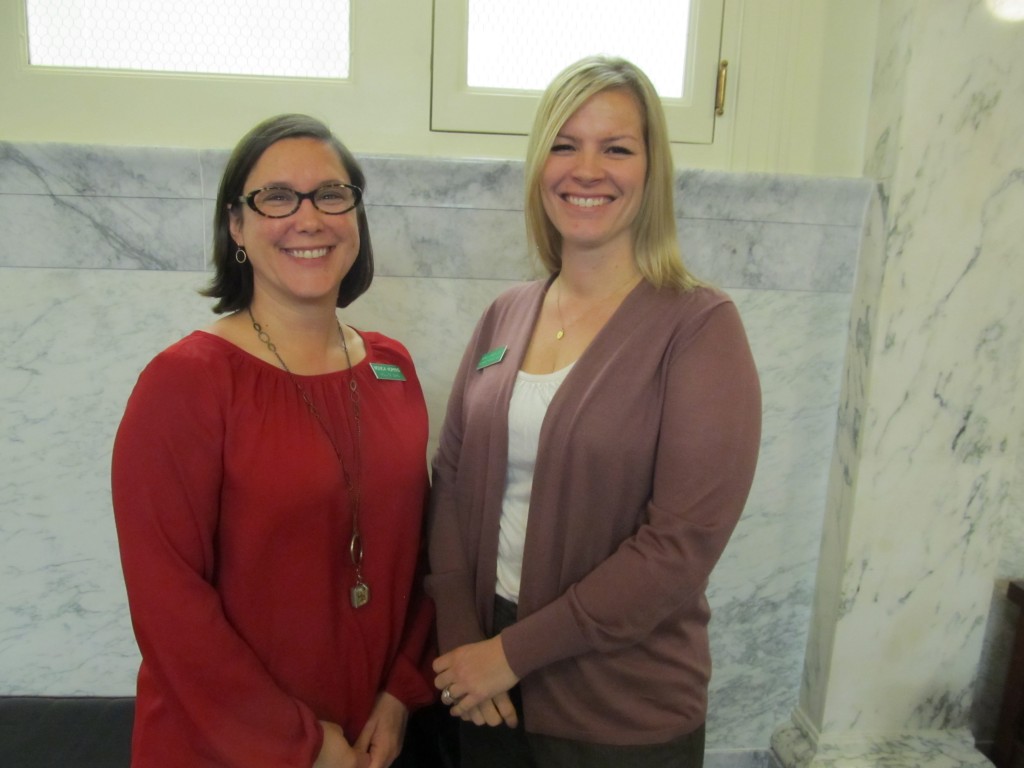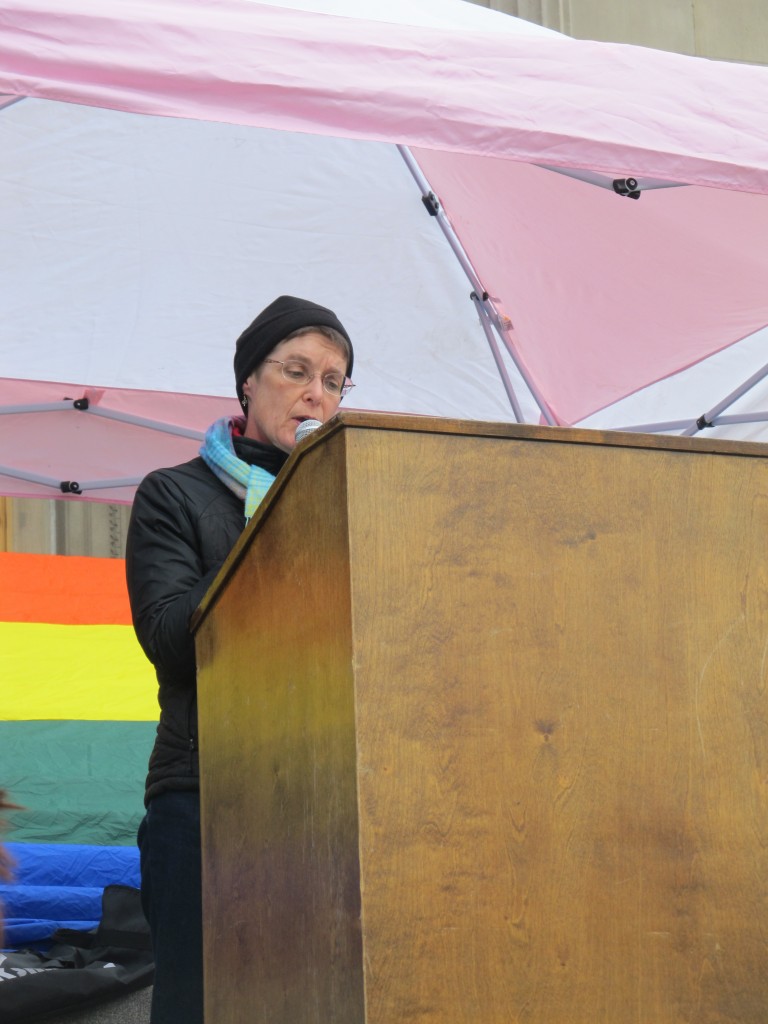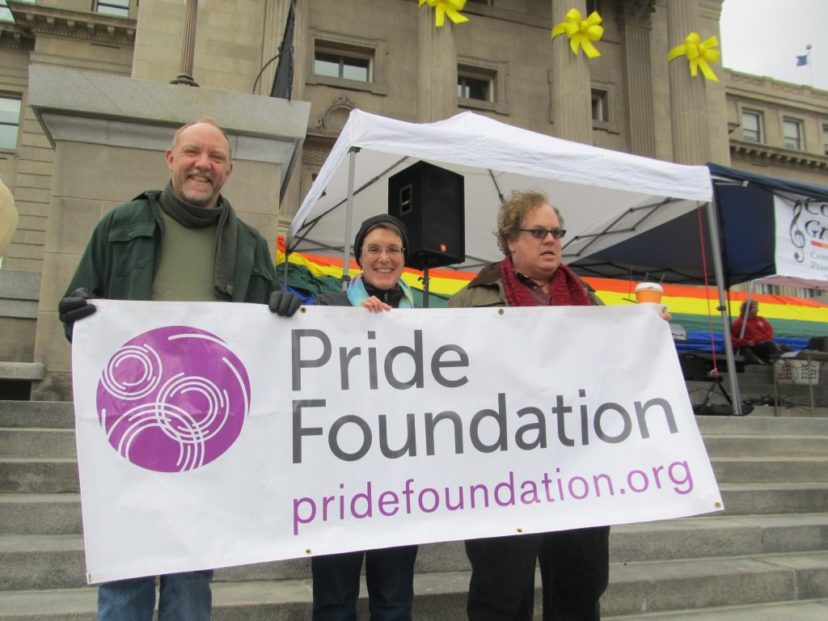
An upcoming May referendum to repeal Pocatello, Idaho’s ordinance protecting LGBTQ residents from discrimination in housing, employment, and public accommodations has mobilized ordinance proponents. The group is determined to do all it can to ensure that the long and challenging road to get the LGBTQ equality ordinance adopted does not result in the eastern Idaho town ending up on the wrong side of history.
Pocatello is one of seven Idaho cities that in the last two years has adopted ordinances prohibiting discrimination based on sexual orientation and gender identity, following several years of inaction by the Idaho Legislature to include those protections as part of the Idaho Human Rights Act. The other cities that have adopted non-discrimination ordinances include Boise, Sandpoint, Coeur d’Alene, Ketchum, Moscow, and Idaho Falls.
Getting Pocatello’s ordinance passed was difficult. It failed the first time through the city council in April 2013 in a 3-3 tied vote with Mayor Brian Blad siding against it. Two months later the ordinance was taken up again and ultimately adopted in a 4-2 vote, following Councilman Steve Brown changing his vote in its favor.
Last fall, Pocatello residents Ralph and Rochelle Lillig led a petition drive to put the ordinance on the May 2014 ballot for repeal and by mid-October had gathered 1,671 signatures—251 more than needed to put the matter to a vote.

“We are not a racially diverse community, or state for that matter. The majority doesn’t see the water they swim in,” said Susie Matsuura, a Pocatello resident and Pride Foundation volunteer who was an active proponent of the ordinance last year and sits on Pocatello’s Human Relations Advisory Committee. “They have never faced discrimination, none of their friends have trouble, and the attitude is ‘Those gays—they choose to be like that and I don’t want their lifestyle in my face.’”
Matsuura is encouraged, though, that in the several months that have passed since she and a handful of community activists stepped up to begin educating the council and residents about the need for the ordinance, the list of supporters has grown significantly.
“I run into people often who say they want to help,” she said. “We have met face-to-face several times to get ready for this campaign. I think as Pocatello residents see the rest of the country moving forward in favor of marriage equality, they are hopefully realizing how wrong a challenge to this ordinance is. They are willing to help keep it and are telling me so.”
In December, Pride Foundation awarded community grants to three nonprofit organizations in Pocatello working on LGBTQ-related issues and programs, including All Under One Roof, which operates an LGBTQ center for youth in southeastern Idaho; Family Services Alliance of Southeast Idaho, offering services to connect LGBTQ survivors of sexual and domestic violence to health care providers; and Sophia Foundation of Pocatello, a not-for-profit group founded by First Congregational United Church of Christ, to implement a community education and advocacy project called One Portneuf Valley, with the goal of making Pocatello and the surrounding eastern Idaho area more LGBTQ-friendly.
“It was natural for inclusive and justice-minded people to think about community education in light of the split-vote controversy leading to the ordinance,” said One Portneuf Valley spokesman and Pocatello resident Larry Gebhardt. “Despite the ordinance becoming law, bad feelings still exist prompted by beliefs, fears, and biases. We can and will engage in activities to help us all see more clearly the value of moving toward One Portneuf Valley.”
“These campaigns are won and lost in the early stages,” said Monica Hopkins, Executive Director of the ACLU of Idaho. “Community members are working with folks to ensure there is a focused, well-organized plan, and we look forward to engaging people who care about this issue.”
Hopkins said there have been similar, and ultimately unsuccessful, ordinance repeal efforts across the country in cities such as Omaha, Nebraska and San Antonio, Texas.
“It is really difficult to ask people to vote in favor of discrimination in order to repeal a non-discrimination ordinance,” she explained. “That said, if it is repealed, we should worry about whether opponents may look to the other six Idaho cities—and the implications that could mean for the over 190 county and municipal ordinances across the nation.”
Hannah Brass Greer, Idaho legislative director and public affairs manager for Planned Parenthood Votes Northwest, said ballot language for the ordinance repeal was approved earlier this month by the Pocatello City Council. A simple majority is all that is required to overturn the ordinance, she said, adding how important it is that Pocatello residents make sure they register to vote, and that they can still do so at the polls on May 20.
Both Hopkins and Brass Greer noted that 2014 is the 50th anniversary of the Civil Rights Act of 1964, which outlawed major forms of discrimination against racial, ethnic, national, and religious minorities and women.
“The fact that we are still fighting for equality for all shows us that no victory ever stays won,” Hopkins said. “We must vigorously demand fairness, equality, and justice for us all.”
Steve Martin is Pride Foundation’s Regional Development Organizer in Idaho. Email Steve.
